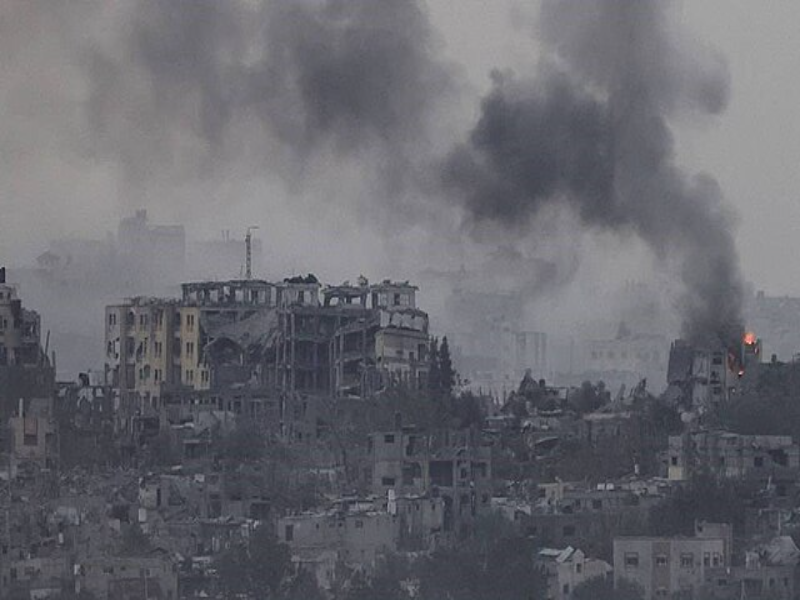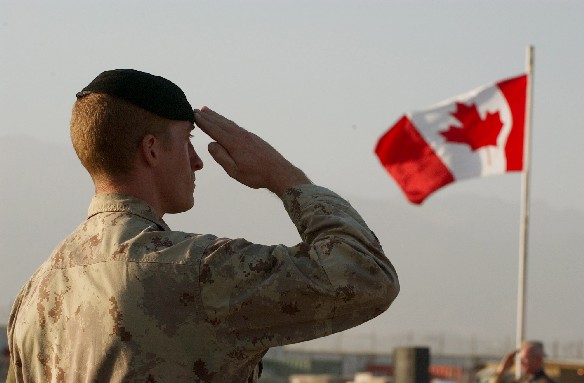It has been four months since the Israel-Hamas conflict started, and until today, more than 28 000 thousand Palestinians have been killed; tomorrow, there could be more. This article aims to discuss the consequences of the war and how the international community is responding to the high tensions in the region.
Since the events of October 7th, Israel’s prime minister, Benjamin Netanyahu, has declared war on Hamas. His campaign has led to massive casualties, with over 100,000 people dead, injured, or missing and more than 170,000 buildings destroyed or damaged. Only thirteen out of thirty-six hospitals are yet partially functioning. More than 300 schools and universities have been destroyed. If Israel’s goal is to eradicate Hamas – a recognized military target – it is not being served by bombing hospitals, which inevitably amplifies Palestinian civilian death and suffering and potentially swells Hamas’ ranks. There are currently 1.5 million internally displaced people in Gaza, who have been pushed onto the border city of Rafah, with no food, electricity, or water.
With over 16,000 women and children killed in the current conflict, the question of whether this war is solely directed against Hamas, and not also meant to serve some ulterior purpose, is open to reasonable doubt. After all, this is not the first time Israelis have attacked the Palestinian population and exceeded the boundaries of international law; other examples include the Deir Yassin Massacre in April 1948, which killed at least 107 Palestinians, or the Khan Yunis Massacre of 1956, in which some witnesses allege that the Israeli military killed Palestinian men who had laid down their arms. More recently, there was the war in Gaza, which occurred on January 3, 2009, when Israel launched a ground invasion after a 6-month truce between Hamas and Israel, which resulted in 1,400 Palestinian deaths and 13 Israeli fatalities.
Human rights group Amnesty International contends that Israel is perpetuating a cruel system of domination against the Palestinians, dispossessing them of their homes, subordinating them, and limiting their movement within the country. We should not be quick to dismiss the assessments of such human rights NGOs, which have also consistently condemned the behaviour of states like Russia that violate international law. We should hold states to a common standard.
Israel claims that it is also fighting to save Israeli hostages captured by Hamas. However, until now, 112 Israeli hostages have been recovered mostly through deals for prisoner exchanges; this casts some doubt on the effectiveness of the military operation, especially considering the fact that the IDF inadvertently killed three other Israeli hostages. Hamas proposed that it is willing to exchange its Israeli hostages if Israel agreed to certain conditions, which included a pause in the fighting, but Israel has thus far rejected the proposal, with no final agreement yet being reached.
These disturbing incidents have taken place against a backdrop of wider concerns going back a number of years that Israel has violated articles in the United Nations Convention of the Rights of the Child, which aims to ensure that children are protected from all forms of physical or mental violence, injury or abuse, even in warfare. As it stands, it will take Gaza a full decade and substantial foreign aid to get back on its feet. Will the international community, including Israel, pay for the recovery, or will the Palestinians suffer by living in a squalid, externally-controlled, and virtually uninhabitable strip? The global community needs to find solutions to these questions to help the Palestinian people.
The international community is surprisingly divided over the war. South Africa filed a case against Israel in the International Court of Justice, accusing Israel of committing genocide and crimes against humanity. The court decision ordered Israel to take all measures to prevent genocidal acts, prevent and punish any direct incitement to genocide, and take immediate and effective steps to ensure the provision of humanitarian assistance to civilians in Gaza, although it stopped short of demanding an outright ceasefire. It also called on Hamas to release Israeli hostages. The ICJ ordered Israel to preserve any evidence related to potential genocide and to submit a report within a month regarding its compliance with this order.
Despite the caution the ICJ has enjoined upon Israel, the IDF has killed over 1,864 Palestinians and injured more than 3000 Palestinians since that time. On top of that, the IDF is threatening a ground attack on Hamas in the city of Rafah, where 1.5 million Palestinians are displaced. Already, some ninety-five people, including forty-two children, have been killed in four attacks by the IDF in Rafah. The grim irony is that this is where Palestinians were told to flee prior to the town of Khan Yunis being bombed. Thus, it begs the question, where are the 1.5 million internally displaced Palestinians supposed to go? If they are let into Egypt, it is very doubtful they will return. This is suggested by the history of how Palestinians were pushed into Gaza in the last 75 years and became unable to return to their former territories. It is an idea that is welcomed by some vocal elements in Israeli society and government who command considerable influence. Over 1 million Palestinians are now sitting on the border of Rafah, not knowing if they are going to be alive the next day or not, with nowhere to go.
The international community must take more concerted measures to end the war. In democratic countries such as the USA, Canada, UK, France and Germany, hundred-thousand-person marches have occurred to demand a ceasefire in the conflict and lobby for more humanitarian assistance for the Palestinian people. Yet, few measures have been taken, even though these countries are democratic and, theoretically, should respond to their constituents. Moreover, Egypt and Israel should collaborate in letting food and other necessities in for the Palestinians on the Rafah border. A ceasefire should be demanded from all of the international community because the collateral damage stemming from the stated objectives of this war have destroyed the strip, resulting in over 30,000 people dead. Then again, the USA has vetoed a call for immediate ceasefire for the second time in a row at the UN after proposing a draft for a temporary ceasefire. This is not a mere political issue anymore, but rather a deeply humanitarian one.
A proposal for a two-state solution is required for both populations to live in peace again, which would end the oppression of the Palestinian people while ensuring a secured civil state. The daily deaths in Gaza surpass many other major conflicts in the 21st century; most are civilians, not soldiers on the battlefield. Millions of people around the world hope to see positive change in the upcoming weeks.
Photo: Gaza war damage 2023, by Tasneem News Agency. Public domain, via Wikimedia Commons
Disclaimer: Any views or opinions expressed in articles are solely those of the author and do not necessarily represent the views of the NATO Association of Canada.




